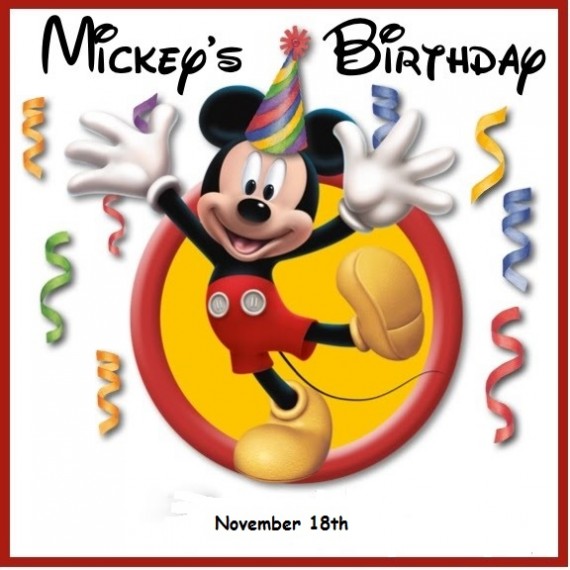by Steve Laube

On this day in 1928 the film “Steamboat Willie” made its debut. The main cartoon character (almost named Mortimer!) was featured and Mickey Mouse was born.
You might ask, “So what? Other than fun trivia, what does this mean to me as a writer?” Actually the success of Mickey Mouse and the Disney empire cuts to the heart of today’s copyright laws which affect you and your work. A quick recital of history will show how Mickey is either your friend or your adversary depending on your opinion of copyright protection.
In 1787 the Founding Fathers established a copyright term of 14 years, and if the author was still alive a renewal for an additional 14 years. Many years later it was extended to 28 years with a 28 year renewal option (a total of 56 years).
Then in 1976 Congress passed a new law that set three new and important rules:
a) copyright protection was defined as the life of the author plus 50 years
b) Material produced before 1922 was considered public domain
c) Material already under copyright in 1976 were given an extension. Their works were protected for 75 years instead of 56 years.
If you do the math, that meant that in 1997 some of these older works were going to start going into the public domain (and Mickey Mouse would become public in 2003). So the corporations began lobbying for a revision to the copyright law.
In 1998 President Clinton signed into law what some call “The Mickey Mouse Law” or “The Sonny Bono Law” (after the California congressman who sponsored the bill). This new law did a couple critical things.
a) Material created after 1923 and still under copyright were automatically extended to at least until a 2019.
b) Copyright protection was changed to life of author plus 70 years (instead of 50).
Note that sunset date…2019. It comes as no surprise that there are some powerful movements to change the copyright law once again. Because when Mickey turns 91 (in 2019) under the current law Disney’s iconic image will become public domain.
That is why we are talking about Mickey Mouse today. As you read and watch our lawmakers and courts wrangle with the issue you will find much debate on all sides. Ultimately it will affect you and your intellectual property. If you happen to write something that becomes a massive success it will be your heirs who will have to wrestle with the legal ramifications of your work. Some believe it should be free and that corporations should not own something forever. Others believe that the creator should be compensated for their work for as long as possible. Meanwhile, today we celebrate the birthday of the little Mouse that created such a ruckus.
For further reading, two fascinating discussions of the issues (which range far beyond book publishing) facing copyright and intellectual property laws:
How to Fix Copyright by William Patry
Digital Barbarism: A Writer’s Manifesto by Mark Helprin
And finally, to fully celebrate Mickey’s birthday, enjoy this delightful cartoon of Mickey, Goofy, and Donald. Nine minutes of cartoon fun!
https://www.youtube.com/watch?v=R8FzGOOQNDY



It would have been really funny if when I clicked on that video, instead of the cartoon, I would have seen a message stating the video had been removed due to a claim by the copyright owner.
Interesting blog. Thanks for sharing.
Clint,
Exactly! There is a surprising amount of material circulating on the web featuring Mickey. But at the same time I think it is Disney’s merchandising that they are most concerned about protecting (like that watch we see so frequently).
Steve
I had always thought that before the copyright ran out, the owner could apply for an extension. Is that not true? Does that mean that at some point down the line, what I write will no longer be owned by my descendants, no matter what?
Sally,
That was the law until 1978 when it changed from a 28 year period and an additional renewal option for 28 more. At that point it changed to the lifetime of the author plus a specific number of year. That current reads as lifetime plus 70 years. No need for renewal at that point.
Steve
Interesting post, Steve. I’ll be honest. I haven’t really studied the copyright laws. I’m glad you brought this up because it’s something we need to consider as writers, even pre-published writers.
Thanks for sharing this.